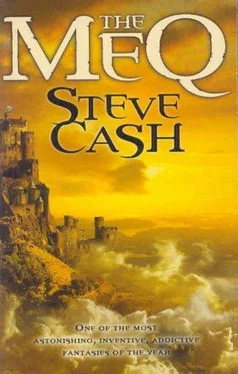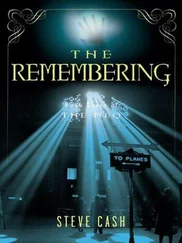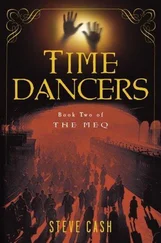Steve Cash - The Meq
Здесь есть возможность читать онлайн «Steve Cash - The Meq» весь текст электронной книги совершенно бесплатно (целиком полную версию без сокращений). В некоторых случаях можно слушать аудио, скачать через торрент в формате fb2 и присутствует краткое содержание. Год выпуска: 2005, Издательство: Del Rey, Жанр: Фэнтези, Детективная фантастика, ya, на английском языке. Описание произведения, (предисловие) а так же отзывы посетителей доступны на портале библиотеки ЛибКат.
- Название:The Meq
- Автор:
- Издательство:Del Rey
- Жанр:
- Год:2005
- ISBN:нет данных
- Рейтинг книги:4 / 5. Голосов: 1
-
Избранное:Добавить в избранное
- Отзывы:
-
Ваша оценка:
- 80
- 1
- 2
- 3
- 4
- 5
The Meq: краткое содержание, описание и аннотация
Предлагаем к чтению аннотацию, описание, краткое содержание или предисловие (зависит от того, что написал сам автор книги «The Meq»). Если вы не нашли необходимую информацию о книге — напишите в комментариях, мы постараемся отыскать её.
The Meq — читать онлайн бесплатно полную книгу (весь текст) целиком
Ниже представлен текст книги, разбитый по страницам. Система сохранения места последней прочитанной страницы, позволяет с удобством читать онлайн бесплатно книгу «The Meq», без необходимости каждый раз заново искать на чём Вы остановились. Поставьте закладку, и сможете в любой момент перейти на страницу, на которой закончили чтение.
Интервал:
Закладка:
“You’re the scarecrow,” I said.
He scratched his beard and laughed a low, strange laugh, almost a gurgle.
“Scarecrow?” he said. “Scarecrow, no. Man of vision, weaver of wisdom, muleskinner, singer, miner, tailor, rabbi, yes. Solomon J. Birnbaum I am, was, and shall be. Yes. yes, indeed. Do you have a name, kid?”
“Yes.”
“Zis is good. And what is it?”
“Z,” I said. “My name is Zianno Zezen. My mama and papa call me Z.”
“Ah, yes. Your mama and papa. Yes, of course.”
Solomon was a big man, a tall man, maybe six feet five, and when he knelt down, as he did then, he did it slowly. He had large feet and hands and my own right hand disappeared as he took hold of it with his.
“Listen, kid.” He paused and looked away from me into the darkness. He pulled and scratched his great black beard. He turned back and spoke slowly. “Do you know what has happened? Do you know what has happened to you and your mama and your papa?”
For a moment I just looked at him. What a stupid question, I thought. Of course I knew what had happened. I knew Papa was dead and I knew Mama was dead, but was I dead? I could still hear Mama’s voice, a clear whisper, “Find Umla-Meq. find Sailor.” But it was an echo with no source. I was scared. I looked up at him. He held my hand tighter.
“Yes, mister,” I said, “I know my mama and papa are dead.”
“Zis is good. But first you do not call me mister. You call me Solomon. For now, for all time, you call me Solomon.”
I said, “Am I dead, Solomon?”
“No, kid, no.” He stopped, cleared his throat, and went on. “Now, listen. Zianno, is it? Yes, well, now listen to me, Zianno, you hear what Solomon says. I try to stop the train by waving with my arms but train is going too fast. It wrecks anyway. I scream out loud, I pray to God, but it is too late, train cars everywhere, upside down, sideways. I unhook Otto, my mule, and go to see if anyone lives. No one does. I hear singing and go to see, but I only find dead man and little boy running away. I follow him. His mama is dying. He stands up to run again, but he spins and falls. I catch him. I put him on Otto to take out of zis place, zis horrible place. He is passed out but mumbling something. ‘Baseball,’ he says. Over and again he says, ‘baseball.’ At his mama’s side, there is a baseball, so I pick it up. Under her head I see baseball glove, so I take it too. I bury his mama there where she has died. I know now the dead man was his papa, but he is under too much train. I leave him. I lead Otto out with the boy on top. He is bleeding and his arm is broken. I take out pieces of glass and sew him up good. I put his arm in splint and make sling for it. We take my secret way through the pass. All night we are walking. All the next day and the next and the next. Then I am cleaning my pans by the fire and poof! he wakes up. Zis is you, Zianno. Zis is what happened. Do you understand?”
Yes, I understood. I was still dulled and numb, but I understood. My mama and papa were gone. It was the most sure thing I had ever known or understood. Then something struck me, a question as much about fate as about fact.
“Why were you there?”
“Zis is my business,” he said without hesitating. “I go there, not to that place, but beyond there, to Central City. I sell the things to the miners that the miners need, some they know they need, some they don’t. So, I rejoice with them, I invoke the spirit of Yahweh, we sing, we dance, and poof! they find out they need these things. Simple, sweet. Zis is good. Then I return and do the same thing again. I was returning when the train came, Zianno. I don’t know why I was there, except I am on business.”
He started to rise, then knelt down again and with his huge fingers spread my eyes open and searched them thoroughly. Then he straightened up, adjusted the small, round cap on the back of his head, and said, “Let’s have a look at zis arm.”
When he untied the knot on the sling and unwrapped the bandages, he gasped and said, “Great Yahweh!”
I looked down at my arm. There were no cuts, gashes, stitches, nothing; only a few faint red lines marred my smooth, twelve-year-old skin. I moved my fingers. I stretched my arm out straight and opened and closed my fist. I had total movement and strength. Nothing was wrong. It was as if nothing had ever happened.
The big man looked at me closely, up and down, as if I had appeared from nowhere. Then he unwrapped the blanket and said firmly, “Stand up, kid.”
I did and I was unsteady at first, but in a moment I felt fine.
“I have heard of zis,” he said.
“Heard of what?”
“Zis thing, zis trick, zis gift of Yahweh.”
I didn’t know what he was saying. I didn’t know anything. All I knew was that he had found me, taken care of me, and I was physically healed. I was a million things inside, mostly sad and lost, but unasked and unannounced, this man, this stranger, had saved me.
“The old, old rabbis from Germany told stories, stories of wondrous children who lived in mountains by the sea.” He was talking to me, but his eyes were remembering long-forgotten men and places. “What are your people, Zianno? What were your mama and papa?”
“Basque,” I said. “Sort of.”
“What do you mean, ‘sort of’?”
“My mama was telling me on the train we were more, or different, or older. She was telling me just before—”
He cut me off and said, “Never mind. We will not talk of zis now. We will talk later. Now we rest. Tomorrow, we start our journey and we will talk on our journey like many women at once.”
“But—”
“No,” he said. “There is only sleep now.”
He kicked dirt on the fire to douse it and eventually settled down in his blankets. I did the same and lay there sleepless for a time. Then I said, hoping he was still awake, “Where are we going. Solomon?”
Without a moment’s hesitation, he answered, “St. Louis, kid. St. Louis.”
The next day we were on our way, sitting on the bench of his wagon, the Solomon J. Birnbaum Overland Commodities Co., being pulled by Otto and his stablemate Greta. We mainly followed the railroad tracks, but occasionally Solomon had his own trails and shortcuts. It was a long journey that is a story in itself and on that journey we talked about many things. I never once thanked him for saving me and he never asked. Strangers never do.
2. EGURALDI (WEATHER)
Weather. We talk about it all the time; the mess, the beauty, the dread, the joy, past, present, future, the common event, and always the uncommon. We talk about it, think about it, worry about it, and take it for granted. We journey toward it, through it, around it, away. It has power over us, but we are powerless, except for our flimsy attempts at shelter. It rains, we run. Weather is power because it is unknown. unpredictable. It is a force that influences me greatly. The power of Weather and. the Weatherman.
We arrived in St. Louis in the late summer of 1881. The last four days of our journey had been in a constant, steady rain. We were wet and miserable and the mules were stubborn and feisty. Still, we went out of our way to meet a friend of Solomon’s in Washington, Missouri, who had a makeshift ferry. We somehow got the mules and wagon on board. In the rain, we made our way down the last stretch of the Missouri River and around the bend into the Mississippi, docking in the dark somewhere in south St. Louis. When I asked why we had gone to so much trouble, Solomon just said, “Zis is good business.”
He had many strange routines concerning business, especially when it came to arrivals and departures. Solomon had anxious creditors at every stop. He was a fair man and always paid his debts eventually, but his ideas, appetites, and love for all games of chance came first.
Читать дальшеИнтервал:
Закладка:
Похожие книги на «The Meq»
Представляем Вашему вниманию похожие книги на «The Meq» списком для выбора. Мы отобрали схожую по названию и смыслу литературу в надежде предоставить читателям больше вариантов отыскать новые, интересные, ещё непрочитанные произведения.
Обсуждение, отзывы о книге «The Meq» и просто собственные мнения читателей. Оставьте ваши комментарии, напишите, что Вы думаете о произведении, его смысле или главных героях. Укажите что конкретно понравилось, а что нет, и почему Вы так считаете.












